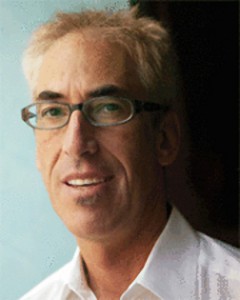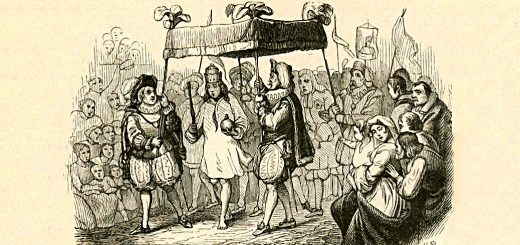Bill Lipschutz – Sultan of Currencies – Investor Profile

This article is part of our ‘Guru’ series – investor profiles of those who have succeeded in the markets, with takeaways for the private investor in the UK.
You can find the rest of the series here.
Contents
The currency market
The currency (FX) market is the largest market of all, much bigger than the bond market, which in turn is much bigger than the equity market. Most of the trading takes place on the 24-hour interbank market, rather than on exchanges.
Large players can take billion-dollar positions in this market yet remain unknown to the public, or even the financial community.
Bill Lipschutz
Bill Lipschutz is one those people. He spent eight years at Salomon Brothers as their largest and most successful FX trader, before leaving to set up his own firm – Rowayton Capital Management. In 1995 he founded Hathersage Capital Management.
His time at Salomon coincided with the firm’s growth from zero involvement in FX to perhaps the market’s largest player. Lipschutz was there for the birth and growth of the currency options market, and earned more than half a billion dollars in profits for the firm.
Lipschutz features in New Market Wizards, the second of Jack Schwager’s series of four sets of trader interviews. His chapter is called “The Sultan of Currencies.”
Architecture to stock options
Lipschutz began as an architecture student at Cornell, but his grandmother died and left him a $12K stock portfolio, which he began to trade. Gradually trading took over his life and he never practised as an architect.
Alongside the 5-yr architecture course, he took an MBA, and his final year placement from that course was at Salomon. He actually took the spot his wife – a fellow Cornell student – had the year before.
He was personally trading stock options at the time, though he knew little about it. He read the Economist, Barron’s and Value Line, and watched the 15-minute delayed price feed on cable TV.
His placement was on the stock options desk, but the trading at the time was very non-quantitative, and options were just being used as leverage on the underlying stocks. Nobody knew about the Black-Scholes pricing model.
Salomon’s culture
After the internship he joined Salomon full-time, and went on the company training programme. This involved being exposed to all the key people in the firm, and ingesting the company’s culture.
Lipschutz felt that this process was very important, but that it became lost as the firm grew in the late 1980s, and the new trainees were cookie-cutter copies of one-another.
The culture came out of the company’s proprietary trading background. It was run for years by “a handful of very strong, charismatic individuals. They were street fighters who were betting their own money.”
Lipschutz was close to John Gutfreund, the chairman, and believed that the firm was all about honesty and integrity. He stuck to this line when Salomon became involved in a government bond-buying scandal a few months after his interview with Schwager.
Currencies
After the training course, Lipschutz was moved to currencies because he was so quantitative. He didn’t know anything about currencies, but neither did anyone else in the new department.
They learned by having dinner with international bankers three or four times a week, something that the shy Lipschutz didn’t enjoy.
The department was formed at the same time that the Philadelphia Stock Exchange (PSE) introduced the currency option contract.
Lipschutz was the only team member with options experience, and also the only one familiar with the specialist (single market-maker) system that the PSE was using. Every-body else came from a fixed-income background.
So the market, the department and Lipschutz’s career all grew in sync.
Hard-ass
Lipschutz tells a story about not enforcing a series of no-brainer trades against a PSE specialist who got his prices wrong. After each trade he asked the specialist to check his selling price, so he had no qualms about buying more and more.
He decided not to enforce the trades (take the profits) because enforcing the losses on the specialist would have bankrupted the guy, and damaged the fledgling currency options market.
He didn’t do it because he was “nice” – in fact he is known as a “hard-ass”. He did it to protect the market. It was a career move.
Relationships and credit risk
At this point, Lipschutz says that the FX market was all about relationships, which provided information flow and good liquidity when you needed it.
His knowledge of options meant that a lot of FX people brought their clients to him. He was also more down-to-earth than most of the FX guys, who were ex-bonds people.
Lipschutz was the first person at Salomon to have a Telerate screen at home. He had realised that FX was a 24-hour market. He was talking to international bankers around the clock.
Credit risk (counterparty risk) is key in FX markets. Lipschutz has never been caught out, and normally Salomon would have stopped trading with someone months before they ran into trouble.
It’s in everyone’s interest to know when there is a problem, so credit officers are very quick to share information.
Sharp practice
Lipschutz believes that market makers will try to pick off stops when they can, and that in open outcry markets, clever (winning) orders will often just not get filled, especially when the cover of a “fast market” is available. ((When an exchange declares a “fast market”, floor brokers aren’t held responsible for failing to fill orders within the day’s traded price range.))
A fast market gives the floor brokers a special license to steal, above and beyond their normal license to steal.
He also believes that front-running of client orders is entirely standard in the inter-bank FX market (where it is not illegal).
This – and the bid-offer spread on client transactions – is what supports the dozens of FX traders employed by the large banks. They can’t all be profitable on their own account.
There’s a perception that everyone is a trader, but only about a half-dozen people took real risk. The rest were just making markets.
Personal account and risk control
Lipschutz built his personal account from the $12K he inherited up to $250K over five years. Then he blew almost the whole amount over a few days.
He was long puts on the Dow on the famous “Granville reversal” in 1982 – the bottom of the bear market. ((Joe Granville was a popular market advisor who put out a sell recommendation at the bottom of the market )) Lipschutz kept pyramiding down and lost almost everything.
After that he stopped trading his personal account. His monthly Salomon pay-check was invested in a government-securities money market account.
He became much more interested in risk-control:
- don’t put too much of your money on one big trade or group of highly correlated trades
- understand the risk/reward of the trade as it now stands, not when you put the position on
- in a losing streak, cut back position size until you regain confidence and can analyse information properly once more
Leaving Salomon
The original head of the FX department left in 1998, and Lipschutz took over for a year and a half. Personnel issues took him away from trading, and he didn’t like the travel.
Salomon wouldn’t let him hire a co-manager to run the admin side, and instead brought someone in above him. He had a bond background and things just didn’t work out.
He left and started his own firm. Unlike most people, Lipschutz sees the small size of his own firm as a disadvantage.
A large buyer can push the market with his trades, and if he is skilled, can exit the position with a profit.
Trading style
- Lipschutz trades off the macro fundamentals – which way he expects the FX rates to move – but if this isn’t confirmed by the price action, he will go flat, and perhaps buy the dips.
- If the fundamentals change (deteriorate), but the price action remains positive, Lipschutz would still get out. In that situation, there’s something going on that he doesn’t understand.
- He doesn’t believe that traders who make gut decisions last the course. He believes that good traders are smart, and they work hard,
- You also need the courage to be different.
- Before you put on a trade, always ask “If this trade goes wrong, how do I get out?”
- This is obviously more important at large trade sizes.
- It’s also more relevant to complicated option strangles and straddles than it is to simple long or even short positions.
- Lipschutz gives a lot of thought to what is the best way to express a trade idea – what particular option combination will provide the most attractive return/risk profile?
- Lipschutz likes to scale in and out of positions, based on fundamentals and price action.
- He also thinks that it is crucial to let your profits run.
Quotes
Good traders constantly ask themselves: What am I doing right? What am I doing wrong? How can I do what I am doing better? How can I get more information? It’s obsessive.
It’s not enough to simply have the insight to see something apart from the rest of the crowd, you also need to have the courage to act on it and to stay with it.
You have to figure out how to make money being right only 20 to 30 percent of the time.
Conclusions
Lipschutz’s interview is a fascinating insight into the FX markets, and the birth and growth of the currency options market in particular, but there are relatively few lessons that are relevant to the UK Private Investor today.
He was lucky enough to be in on the ground floor as a new market was established. His story is one of being a big fish in a small but growing pond, and of often being able to bully the market, something that no private investor is likely to experience.
The lessons that we can take are mostly ones that we have heard before: ((Which is not to say that they aren’t worth hearing from as many successful traders as possible ))
- don’t put too much money on a single trade
- understand the risk/reward of the trade as it now stands, not as at your entry
- in a losing streak, cut back position size
- if the price action doesn’t confirm the fundamentals, or vice versa, get out
- before you put on a trade, always ask “If this trade goes wrong, how do I get out?”
- think about what is the best way to express a trade idea – what will provide the most attractive return/risk profile?
- scale in and out of positions
- let your profits run
Lipschutz believes that good traders are smart, they work hard, and they have the courage to be different.
Until next time.

